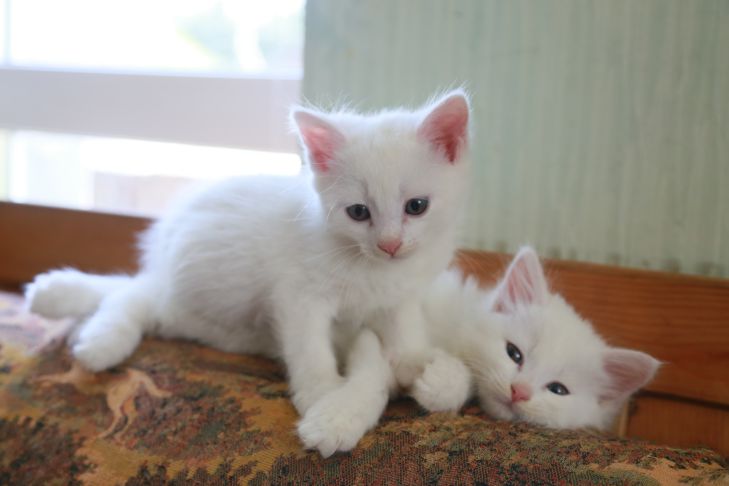Cats' keen sense of smell and agility help them steal a piece of sausage or fish right from a plate or table.
Although cats stealing food may seem cute and funny, this behavior should definitely be discouraged. Not only is food stealing annoying for owners, it is also harmful to the health of the pet.
How can you wean a furry thief from stealing treats? It is possible if you show patience and consistency. Let's look at the main ways to combat cat theft.

Reasons for cat theft
Before you start training a cat, it is important to understand the reasons for its behavior. Why do cats steal food?
Firstly, cats have a keen sense of smell, which allows them to smell food from afar. The aromatic smell of meat, fish or cheese is simply impossible to ignore.
Secondly, cats are naturally curious and exploratory. They are interested in studying new objects and substances, which includes human food.
Thirdly, cats are prone to food habits. If a cat has tried tasty food from a human table at least once, it will remember it and want to repeat it.
Finally, some cats steal food because they are anxious or bored. For example, if a cat is often left alone at home for long periods of time, it may begin stealing food to pass the time or relieve stress.
So, there are many reasons for cat theft, and all of them are rooted in cat nature. To solve the problem, you need to eliminate the very possibility of theft.
Ways to stop a cat from stealing food
As a rule, it takes a lot of effort to stop a cat from stealing food. Simply locking the cat in during each meal is not a solution - it can have the opposite effect. The cat will be even more interested in the inaccessible food and will look for opportunities to steal it.
Here are some effective ways to combat cat theft:
Feeding a cat separately from the family
It is best to feed the cat in another room, away from the owners' eating areas. While the family is having breakfast in the kitchen, the cat should eat in the room or on the balcony. Place the bowl of food in a place inaccessible to the smells of human food.
Get used to a strict feeding schedule
A cat should have a clear meal schedule. If a cat gets used to having a bowl of tasty food waiting for it at a certain time, it will be less interested in human food.
Do not leave food unattended
In no case should you leave plates of food on the table and leave. All products, even those covered with lids, should be kept out of the cat's reach. It is better to immediately remove from the table anything that might attract a cat.
Feed the cat until it is full
A hungry cat will be more active in looking for any opportunity to steal food. Make sure that the cat is always full after feeding. If necessary, increase the portions or feed more often.
Ignore attempts at theft
If your cat jumps on the table and tries to steal food, don't scold it or chase it away. It's best to completely ignore the behavior so as not to reward the cat with further attention.
Use distracting objects
Place some toys or cat treats on the floor near the dining table. When the cat approaches the table, redirect its attention to these items.
Teach the command "No!"
Say this command in a firm and confident tone every time your cat tries to steal food. In the future, your cat will learn that this is not allowed.
Use a water bottle
If your cat stubbornly climbs onto the table, spray it with a spray bottle. It is unpleasant for the cat, but absolutely safe. This method helps to wean it off stealing.
Cover food with lids or containers
Food in closed containers will be less accessible to the cat. You can also cover plates and bowls with inverted bowls or plates.
Use repellent scents
Cats do not like strong smells of citrus and mint. Wipe the table with vinegar or essential oils of these plants - the cat will avoid such places.
Make tables and chairs uncomfortable
Wrap chairs with tape to make them uncomfortable for your cat to sit on. You can also move chairs under the table or cover the table with a tablecloth that hangs to the floor.
Use cat pheromones
Sprays and diffusers with pheromones reduce anxiety and aggression in cats. A cat relaxed by pheromones will not show interest in stealing food.
Stimulate the hunting instinct
Play with your cat more often, using prey toys. You can also feed your cat more natural raw food. This will help satisfy its hunting instinct.
Use pepper spray
Apply a small amount of capsicum spray with a cat-safe concentration of capsaicin to the items that are susceptible to theft. After the first experience, your cat will avoid them.
Cover dangerous areas
Cover the kitchen sink, trash can, dishwasher, and other areas where your cat can find food.
As you can see, there are many ways to wean a cat off stealing food. The main thing is to be consistent and not give up if the first attempts do not bring results. With the right approach, you can achieve that the cat will stop being interested in human food and will eat only its own food.
Mistakes when training a cat to stop stealing food
Many owners make typical mistakes when trying to discourage their cats from stealing food. What are the most common mistakes?
Punishment and scolding
Never hit or yell at a cat for trying to steal food. This will only frighten the cat and break its trust in the owner.
Attempts to scare them away by splashing water
Cats cannot be trained out of bad habits with water! It is cruel and absolutely useless.
Lack of rewards for good behavior
It is not enough to simply punish for bad behavior. The cat must be praised and rewarded with a treat when it behaves correctly.
Inconsistency of actions and requirements
If the owner sometimes forbids stealing and sometimes allows it, the cat will never learn to distinguish between what can be done and what cannot.
Lack of regular feedings
Irregular feeding and "feeding with what has been eaten" encourages stealing. The cat should have a clear feeding schedule.
Availability of accessible human food
As long as any human food is within the cat's reach, it will not be possible to re-educate the cat. Products should always be put away in cupboards, refrigerators, and storage rooms.
Lack of stimulation of the hunting instinct
If you don't exercise your cat and don't play predator and prey, it will show its hunting instinct inappropriately - by stealing food.
By avoiding these training mistakes, you can overcome the problem of cat theft much faster. The main thing is patience, consistency and care for your pet.
Summing up
So, we have discussed why cats steal food and how to deal with it. The main ways to wean them from stealing are to feed them separately from their owners, to accustom them to a strict feeding schedule, not to leave food unattended and to use the command "No!"
It is also important to always keep the cat well-fed and stimulate its hunting instinct with games. Punishments such as splashing with water can only make the problem worse.
The main thing to remember is that a cat is not a person, and it cannot be blamed for natural instincts. With patience and care, you can direct these instincts into a peaceful direction and enjoy communicating with your beloved pet. Good luck with training!
Previously we explained why cats sleep at a person's feet.








